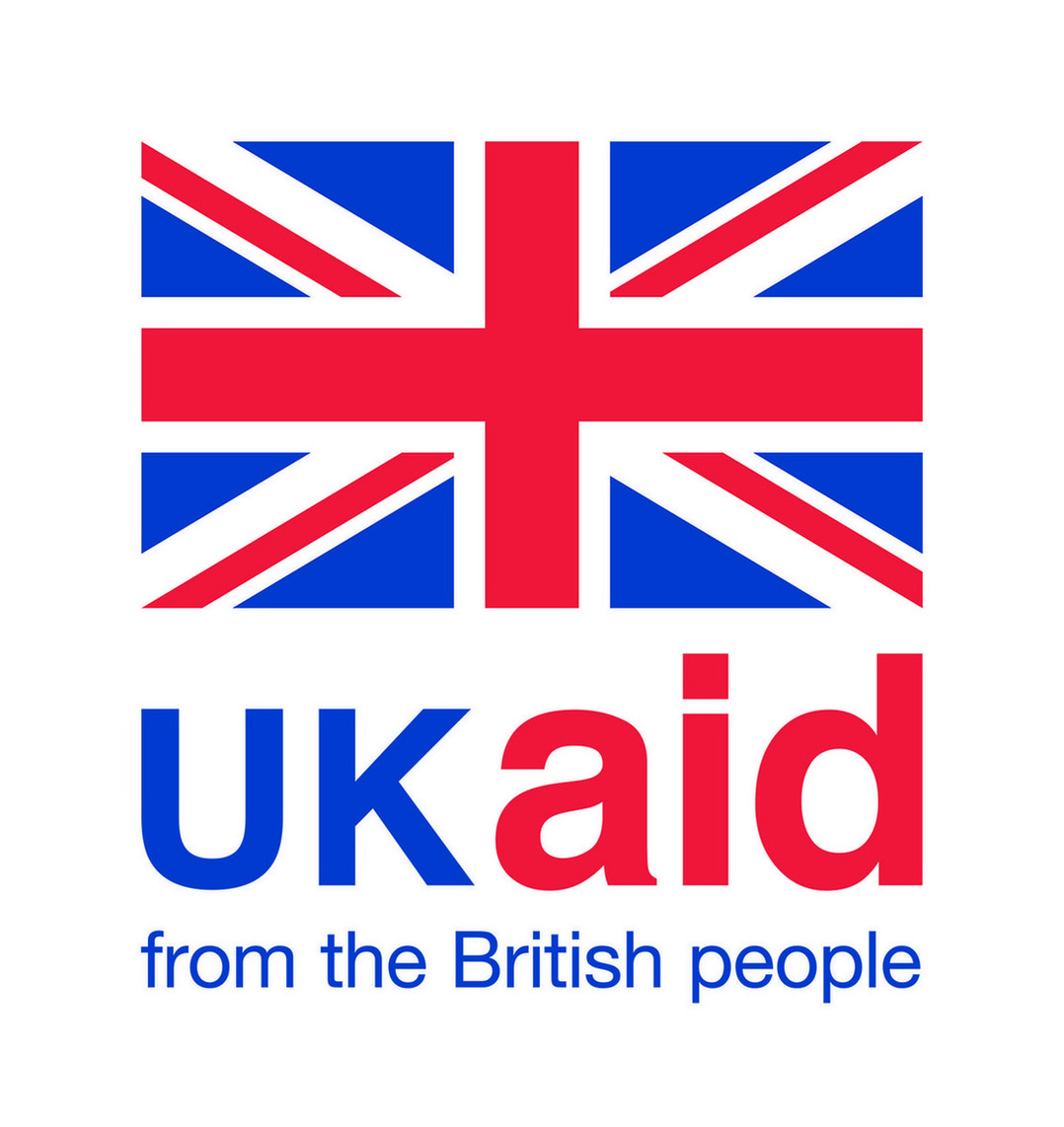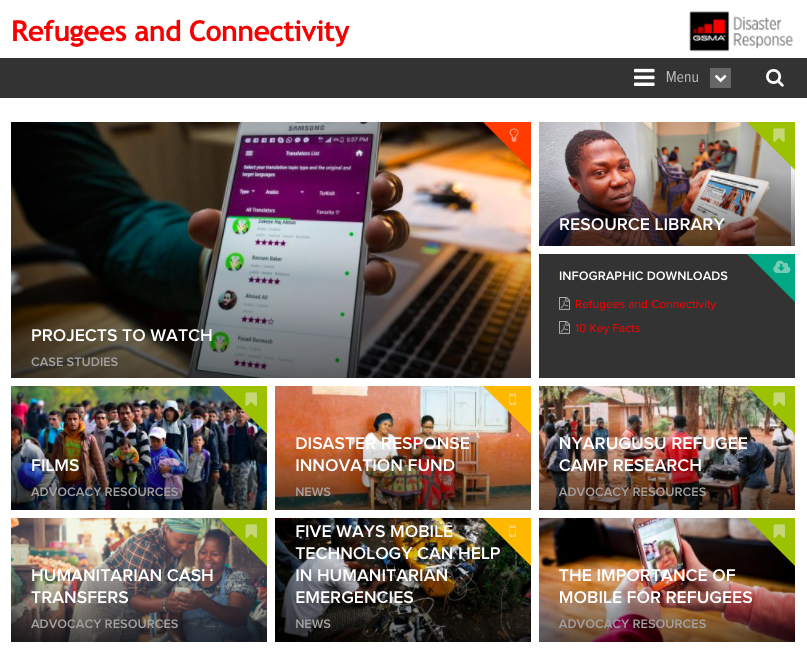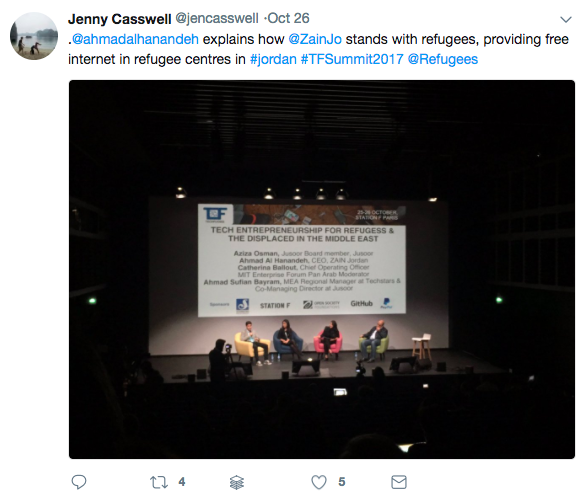On 24 & 25 October the Disaster Response programme took part in the Techfugees Global Summit in the world’s largest start-up campus, Station F, in Paris. The event brought the tech community together with refugees and humanitarian organisations to showcase how technology can improve the lives of displaced people worldwide. We sat on a panel discussing the role of mobile connectivity for refugees, drawing on our research from East Africa.
1. Start-ups continue to create innovative technology-led initiatives to assist refugees
Despite the decline in media coverage about refugees and the associated demise of public and political support – particularly since heightened attention in 2015 around the European refugee ‘crisis ’- start-ups are continuing to create innovative technology-led approaches to assist refugees. Techfugees has a total of 546 projects in their database and there were 42 start-ups at the Summit pitching their products and services, many of which had a mobile technology component. Some of the standout initiatives included:
- TikkTalk: a platform that matches stakeholders with high-quality translators, automating the whole process.
- Aid:Tech: a company delivering aid to Syrian refugees transparently using Blockchain technology.
- Kiron: an organisation leveraging digital tools to enable refugees to access higher education in Germany.
At the GSMA, we have created a refugees and connectivity portal to highlight some of the most impactful solutions that are leveraging mobile technology to support refugees, in order to share best practices and avoid duplicative efforts.
2. The mobile industry can provide impact at scale for refugees, and mobile network operators are stepping up to the challenge
On a panel titled the ‘ecosystem of refugee tech’ Zain Jordan’s CEO, Ahmad Al Hanandeh, explained how the telecommunications company ‘stands with refugees’ and is a firm believer in corporate citizenship. With over 700,000 registered Syrian refugees in Jordan, Zain leverages its technical capacity and extensive reach to support a number of initiatives that are improving the lives of refugees. “The number one need for refugees is to help them to have a normal day-to-day life – where they get the basic requirements that every citizen gets – health, education and being part of the surrounding community,” commented Ahmad Al Hanandeh. One of the major challenges in Jordan is a shortage of jobs, which is why Zain is supporting refugees to capitalise on their entrepreneurial spirit to become job creators through technology, rather than viewing them as job seekers – or worse – a drain on the economy of the country.
3. There is still a lack of robust data to inform what solutions are needed and how they can provide the most impact
The proliferation of ventures that continue to be developed to support refugees would benefit from being better informed about the specific needs of refugees through richer data and quality analysis. On the first panel of the Summit we presented our research on refugees and connectivity, offering specific insights about refugees’ use of mobile technology in Nyarugusu refugee camp in Tanzania. We shared data from a large-scale survey capturing how refugees are using their mobile phones, the value they place on them, and importantly, the barriers to access and usage particularly between different segments of the population. The research is helping to inform humanitarian organisations, mobile network operators and governments on how they can enhance mobile phone access to refugees. We were joined on the panel by Benjamin Hounsell from Samuel Hall who has conducted similar research in Kenya and Uganda adding to the pool of unique research to better inform stakeholders serving refugees of their mobile connectivity needs.
Looking to the future
The needs of refugees are not going away anytime soon and mobile technology will continue to play a central role for people uprooted from their homes, in need of real-time information, the ability to communicate with loved ones and access to essential services such as finance, health and education.
The Techfugees Summit provided a great forum to encourage collaboration and innovation between stakeholders leveraging technology to support refugees. The key will be in delivering services that have viable business models which can achieve impact at scale in order to reach a larger share of the growing refugee population. The mobile industry has the potential, given its scale and reach, to make this a reality. At the GSMA, our members are stepping up to this challenge. We look forward to seeing future mobile-enabled initiatives driven by the mobile industry, in partnership with key stakeholders, which continue to improve the lives of refugees.
The Disaster Response programme is funded by the UK Department for International Development (DFID) and supported by the GSMA and its members.




